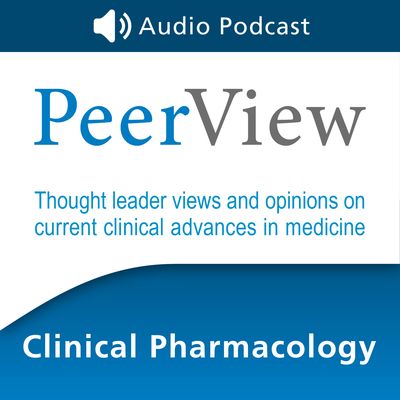PeerView (PVI) is a leading provider of high-quality, innovative continuing education (CME/CE/CPE and MOC) for clinicians and their interprofessional teams. Combining evidence-based medicine and instructional expertise, PeerView activities improve the knowledge, skills, and strategies that support clinical performance and patient outcomes. PeerView makes its educational programming and expert-led presentations and symposia available through its network of popular podcast channels to support specific specialties and conditions. Each episode includes a link to request CME/CE credit for participation. PeerView is solely responsible for the selection of topics, the preparation of editorial content, and the distribution of all materials it publishes.
http://ww2.peerview.com
Benjamin Levy, MD - Refining Current Practice and Exploring New Frontiers in EGFR-Mutant NSCLC: Evolving Science, New Standards of Care, and Implications for Multidisciplinary Management
Go online to PeerView.com/CXH860 to view the activity, download slides and practice aids, and complete the post-test to earn credit. The best practices for management of patients with EGFR-mutant NSCLC continue to evolve as a result of advances in molecular testing and targeted treatment. Understanding what, when, and how to test, as well as how to select therapy, throughout the continuum of advanced NSCLC is paramount. In this activity, based on a recent live symposium held in San Diego, California, experts in EGFR-mutant NSCLC provide a concise but comprehensive overview of all the recent key evidence and new research directions and provide practical guidance for how to navigate clinical decisions in EGFR-mutant NSCLC in different settings and patient populations. Upon completion of this activity, participants will be able to: Discuss the latest recommendations for tissue- and blood-based molecular testing to evaluate EGFR mutation status in patients with advanced/metastatic NSCLC, Assess the characteristics, safety/efficacy profiles, and indications of the different EGFR inhibitors available for the treatment of EGFR-positive NSCLC in different settings and patient populations, including those with brain or leptomeningeal metastases, Evaluate the current evidence related to the mechanisms of acquired resistance to the various EGFR TKIs used in the first line and subsequent therapy of advanced EGFR-mutant NSCLC, Implement best practices related to molecular testing for EGFR mutations through the continuum of advanced NSCLC, and interpret results to guide treatment selection, Implement evidence-based, individualized treatment plans for patients with EGFR-mutant NSCLC.
